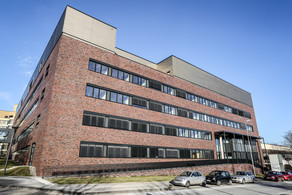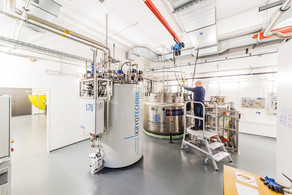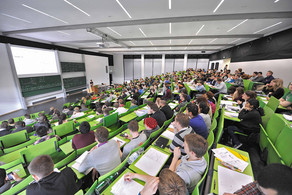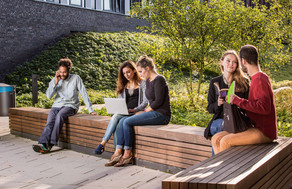Excellent international science communication

All over the world, scientists are researching quantum communication using individual particles of light, known as photons. This should make data communication much more secure and energy-efficient in the future. One such single-photon light source traveled through twelve European cities from April 2024 to April 2025 as part of the "QuanTour" project. The project was a prelude to the International Year of Quantum Science and Technology 2025. Starting in Germany, the light source - accompanied by various student groups - traveled to Austria, Italy, Switzerland, Spain, France, England, Ireland, Scotland, the Netherlands, Denmark, Sweden and Poland. At each new location, a laboratory team carried out its own measurements to check whether the source was actually emitting individual photons. The public was able to follow the journey via a podcast and an Instagram channel.
QuanTour impressed the IOP Awards Committee with this concept. The jury statement said: "QuanTour has made a transformative contribution to public understanding of quantum science, particularly in the UK and Ireland." The combination of lab demonstrations and outreach via conventional and digital channels has provided unique insights into the careers, challenges and successes of physicists. "By demystifying quantum technologies and highlighting their importance for the future, QuanTour has strengthened the connection between the scientific community and society," the jury continued.
More than one million people reached
The figures also speak for the success of the project: QuanTour has reached more than one million people via the digital platforms. "That's far more than we ever thought," says Prof. Doris Reiter, who coordinates the project together with her colleague Dr. Tobias Heindel from TU Berlin.
"Our aim was to arouse the curiosity of young people between the ages of 15 and 25 in particular with a light, entertaining concept. We wanted to make science approachable, connect people and show the diversity of science - from students to professors." The team succeeded: Young and old visitors came to open lab days, families proudly held newspaper articles in their hands in which their children and grandchildren were mentioned, regional media reported in many languages on the role of local researchers in the Europe-wide initiative.
"Looking back, we learned a lot about what makes successful science communication," Reiter summarizes. One crucial point was choosing the right partners. For QuanTour, these included the German Physical Society, which carried out the project as part of the International Year of Quantum Science and Technology 2025, and the Wilhelm and Else Heraeus Foundation, which financed the tour. There was also a close collaboration with Dr. Pranoti Kshirsagar, founder of the platform "The Science Talk". She produced the twelve-part podcast series with all the group leaders of the twelve QuanTour labs. The podcast became a kind of lecture series on quantum science - and is still accessible to everyone today.








